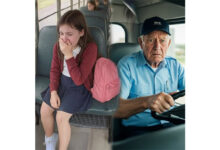Where Did the Homeless Man Go? The Heartbreaking Story of Hazel, the Cat Who Waits for Love
Every night, millions of us lock our doors, turn on our heating, and settle into beds that cost more than some people see in months. But outside, in the cold shadows of our cities, an extraordinary form of love survives—one so pure it exposes the ugly truth about what we value as a society.
One in four homeless people has a pet. Let that sink in for a moment. People who have nothing—no roof, no steady income, often no family—will share their last scrap of food with a dog or cat that chose them. They’ll sleep on concrete so their companion can have the warmer spot. They’ll refuse shelter because most facilities won’t allow animals.
And we call them the broken ones.
When Love Means Choosing the Streets
“So I chose the cold,” those words should haunt every person who’s ever complained about their thermostat. Here’s the reality that makes comfortable people uncomfortable: homeless individuals regularly choose hypothermia, hunger, and danger over the safety of shelters—because their pets aren’t welcome.
According to research, up to 25% of homeless people have companion animals. These aren’t “just pets”—they’re family members, protectors, sources of unconditional love in a world that has shown them none. Yet our shelter system, in all its bureaucratic wisdom, forces people to choose: your safety or your family.
Most choose family.
The Psychology of Survival Love
There’s something profound happening in these relationships that housed society struggles to understand. When you’ve been rejected by humans—when family stops taking your calls, when society treats you as invisible—an animal’s love becomes a lifeline to humanity itself.
Psychologists have documented that homeless people with pets show better mental health outcomes, more stability, and stronger will to survive. The animal doesn’t just provide companionship; it provides purpose. Someone depends on you. Someone thinks you matter.
“She chose me,” he said about Hazel. “That’s all that matters.”
In a world that had abandoned him, being chosen—being needed—became everything.
The Morality Test We’re All Failing
Here’s what should make you angry: we live in a society that will spend thousands on designer dog beds while a man sleeps on concrete because he won’t abandon his cat. We build shelters that exclude the very relationships that keep people human.
Every night, someone is making an impossible choice—freeze or abandon family. And we wonder why homelessness persists.
The homeless man with his cat isn’t the problem. He’s the mirror showing us exactly what unconditional love looks like. While we love our pets when it’s convenient, he loved his when it could kill him.
When the System Fails, Love Remains
Three nights in a row—empty concrete where love once lived. A “city crew clearing the area.” Bureaucratic language for destroying someone’s home, separating a family, breaking a bond that was probably stronger than most marriages in your neighborhood.
And then Hazel appears—alone, waiting, looking like she knows exactly who might help her find her human.
This isn’t just about homelessness. This is about what we value, what we protect, and what we’re willing to destroy in the name of “order.” It’s about recognizing that the purest love in our cities might be happening on the streets we pretend not to see.
The Question That Matters
So here’s what you need to ask yourself: What would you sacrifice for love? And more importantly—what is society demanding we sacrifice in the name of rules, regulations, and keeping up appearances?
Because somewhere out there, Hazel is still waiting for the person who chose cold concrete over warm shelter, just to keep her safe.
And that person—whoever he is, wherever he went—understood something about love that most of us never will.

